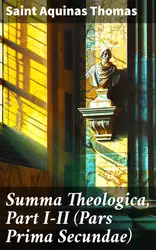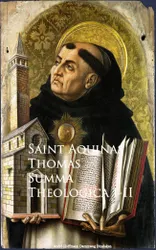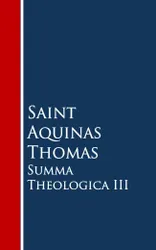Scholars widely recognize Thomas Aquinas as the most authoritative Catholic religious philosopher to connect Christian belief (in particular, the ideas of Augustine the Blessed) with Aristotle's philosophy.
It was Thomas Aquinas who formulated the five proofs of God's existence.
Recognizing the relative independence of the natural being and human reason, he argued that nature is perfected by grace and reason by faith. Philosophical knowledge and natural theology, based on the analogy of being (analogia entis), are perfected by supernatural revelation.
Aristotle exerted the greatest influence over Thomas Aquinas' own philosophy. He creatively reinterpreted and reframed Aristotle's ideas. Other sources of inspiration came from Greek and Arab commentators on Aristotle, neo-platonists, Cicero, Pseudo-Dionysius, Areopagita, Augustine, Boetius, Anselm of Canterbury, John of Damascus, Avicenna, Averroes, Maimonides, and many other thinkers.
Translated by the fathers of the English Dominican Province.






